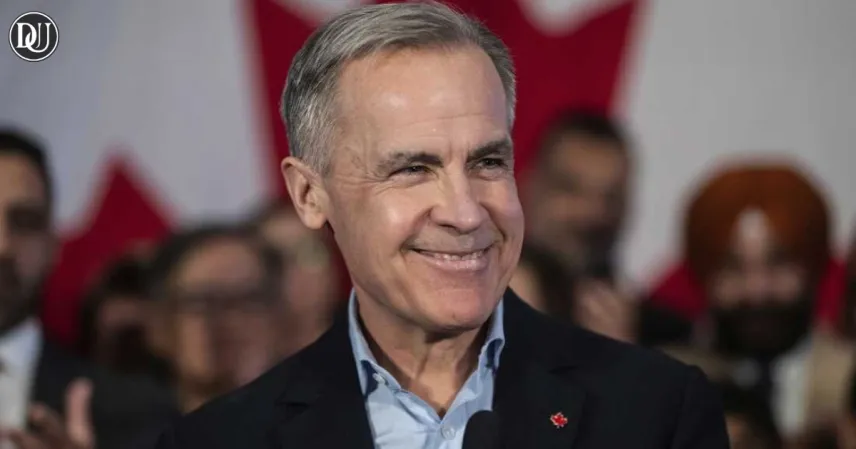Mark Carney, the former Governor of the Bank of England and Governor of the Bank of Canada, recently stepped down from Harvard University's prestigious Board of Overseers. His resignation comes as he takes on a new role as the Prime Minister of Canada. Replacing him on the board is Anjali Sud, the Indian-American CEO of the popular streaming platform Tubi, marking a significant transition in Harvard’s leadership.
Mark Carney’s Impact at Harvard
Mark Carney joined Harvard’s Board of Overseers in 2020, bringing decades of experience in global finance and economic policy. Throughout his tenure, Carney contributed strategic insight into financial governance and sustainability issues, helping guide the university through complex challenges. His leadership extended beyond economics, influencing discussions on climate change and social equity, reflecting his holistic approach to global issues.
Carney’s departure marks the end of a notable chapter for Harvard, but it also opens the door for fresh perspectives, as the university continues to evolve its governance to reflect a diverse, global community.
Anjali Sud: A New Chapter Begins
Anjali Sud’s appointment to the Harvard Board is significant for several reasons. As CEO of Tubi, she has transformed the streaming service into a thriving platform with millions of users worldwide. Her career, spanning roles at Amazon, Time Warner, and Vimeo, showcases a deep understanding of technology, innovation, and business strategy.
Sud’s presence on the Harvard Board brings a strong voice of tech industry leadership and diversity. Her election reflects Harvard’s ongoing commitment to inclusive governance and the importance of adapting to rapidly changing technological and social landscapes.
Why Mark Carney’s Role Was Important
Mark Carney’s role at Harvard was unique, blending his financial expertise with his passion for environmental and social governance. During his time on the board, Carney advocated for integrating sustainability into investment strategies and university policies. His efforts helped Harvard align more closely with global movements toward responsible investment and climate action.
Furthermore, Carney’s international experience offered Harvard a valuable viewpoint amid the growing globalization of education and research. His work emphasized the university’s role in shaping not just academic excellence but also global citizenship.
Transition and Future Directions
With Mark Carney’s departure, Harvard faces the challenge of maintaining the momentum he helped build while embracing new leadership styles. Anjali Sud’s entry signals a focus on innovation and technology, sectors that are increasingly vital in higher education.
Sud has expressed her vision for Harvard to be at the forefront of defining the future of education by leveraging technology and encouraging creative problem-solving. Her appointment is seen as a move to balance tradition with the demands of the 21st century.
Broader Significance of Mark Carney’s Career Moves
Mark Carney’s transition from the Harvard Board to the Prime Minister’s office in Canada underscores the fluidity between public service and institutional governance. His career illustrates how expertise in finance and policy can impact multiple arenas, from global banking to national leadership and academic governance.
Carney’s ongoing influence in Canada as Prime Minister is expected to bring a pragmatic approach to economic recovery, climate policy, and international relations. His ability to navigate complex systems remains one of his defining strengths, now poised to benefit his home country.
Conclusion
Mark Carney’s stepping down from Harvard’s Board of Overseers closes a chapter of impactful leadership in higher education governance. His successor, Anjali Sud, brings fresh energy and a forward-looking vision that aligns with Harvard’s ambitions in technology and innovation.
Together, these leadership changes highlight the dynamic nature of governance in elite institutions and the ongoing need to balance experience with new perspectives. Mark Carney’s legacy at Harvard remains a testament to his broad influence, while Anjali Sud’s appointment points toward an exciting future.










